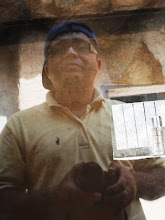Doleful Syndrome: As and when the price of the share, (where the
person has invested with great expectations and dreams) falls down below the
buying price, the person does not sell out the shares, develops keen attachment
for it and keeps on watching the fall of price of share as mute spectator. He carries
on praying for the recovery of the falling prices and goes on searching for prediction
by some picayune pandits, who will forecast the revival of that particular share
and the investor believes it to be true. But, when the price falls down below an
alarming level, person finds himself in panic situation and identifies himself as
a loser and then buys more shares for averaging and just for the reason to justify
his decision of selection of share and timing as correct. As the share prices
continue to fall and the investment amount is about to be wiped off, it confuses
the investor and demoralises him from taking interest and enthusiasm in share
trading, which blurs the vision and dilutes thinking ability, handicaps him to only
myopic vision. Even if the person sells out the shares after suffering significant
losses, he reinvests in haphazard way with vengeance not following the basic
principles of investing but under extreme urgency to recover from the losses incurred
in previous trade. Keen observation and continuous watching, knowing the traits
and identification of falling share and getting rid of plummet at earliest,
saves the investor’s funds.
Put all one's eggs in one basket Syndrome: Instead of studying the patterns, stages, trends and
fundamentals of various shares, the investor falls for attraction for a
particular share or particular segment and invests his complete funds in a
single share or segment, with justification to keep the calculations,
observations, accounting and investments easy and not in complex form. As and
when the market price of that specific share or segment falls down, the
investor not only loses the money but also loose the choice to invest in any
other share or segment. Diversified portfolio is less likely to suffer the
losses at the time of falling market.
Oniomania Syndrome: As the investor gets desperate to buy shares with obsession,
he invests in one or the other shares for no calculative & logical reasons
but massively under influence. The investment is carried out without the study
of present scenario and without understanding the present stage of company of
which the shares have been bought. The only triggering aspect for buying
haphazardly is that the investor has got funds in his pockets and he wishes to
explore the market & gamble. Buying should only be done after fundamental
analysis, knowing the present stage of share / company, understanding the
trends & patterns and only at around the right timing.
Chickenfeed profit booking Syndrome: As the investor experiences the rise of the market
price of his portfolio shares, he gets excited and sells off the shares at
5-10% or maximum 25% profit margins. The selling is caused by temptation, as if
in exigency, without any calculation of any better option of utilisation of
liquid funds received, without the study of stage, uptrends, duration of
uptrends, without study of reasons of rise in price shares. Profit is booked at
earliest and in hurry, fearing it as short-lived luck. Study before selling
enables to optimise the profits which is the sole motive of trading and to
exploit to the maximum after a good buying. Selling too should be based on
study and not to be influenced by emotional & psychological factors.
Bully of Impuissant Syndrome: The investor chooses for OPTIONS before FUTURES &
that before INTRADAY & that before normal trading. He skips learning
stages, becomes helpless, driven & screwed by market forces. Climbing in
steps gives learning & protection from slipping.
The investor continues to be in stage of novice & is
susceptible to demoralising losses as long as he continues and chooses to fall
for any of these five most common syndromes.


















































